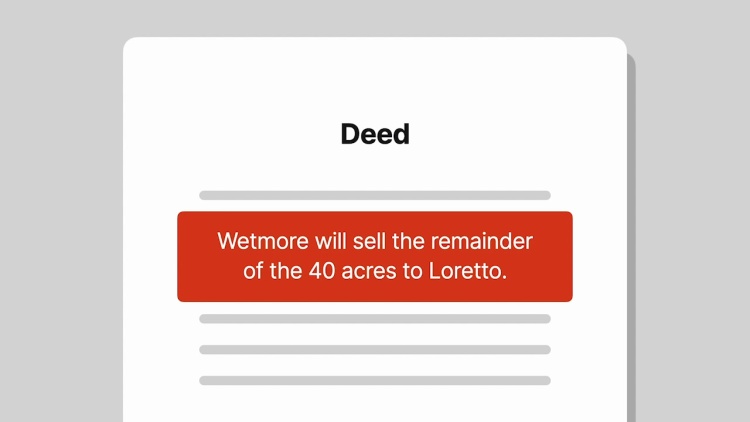Wetmore v. Ladies of Loretto, Wheaton
Illinois Appellate Court
220 N.E. 2d 491 (1966)
- Written by Angela Patrick, JD
Facts
Horace Wetmore (plaintiff) owned 80 acres. Wetmore sold 10 acres to the Ladies of Loretto, Wheaton (Loretto) (defendant). This parcel had no public access, so the purchase included an express easement across Wetmore’s land for accessing the parcel. The easement was on a private portion of a road named Hawthorne Lane that went right past Wetmore’s home. Loretto used the 10-acre parcel for a convent and for hosting public classes and events. At one point, 40 to 50 cars per day were driving past Wetmore’s home. Wetmore then sold Loretto an additional 40 acres. This purchase did not include any express rights to the Hawthorne Lane easement. However, the new property allowed Loretto to build a road giving the 40-acre parcel direct access to a public road. After Loretto built the new road, traffic on Hawthorne Lane decreased to four to five cars per day. Loretto also built a new building that was partly on the 10-acre parcel and partly on the 40-acre parcel. Wetmore sued Loretto. Wetmore claimed that because visitors to the new building were using the Hawthorne Lane easement, Loretto was improperly using the easement to access both the 10-acre parcel and the 40-acre parcel. Loretto claimed there was an implied easement on Hawthorne Lane to access the 40 acres. The trial court ruled for Wetmore, finding no implied easement and enjoining Loretto from using the easement on Hawthorne Lane for any purpose as long as it was using the building that was partly on both parcels. Loretto appealed.
Rule of Law
Issue
Holding and Reasoning (Davis, J.)
What to do next…
Here's why 907,000 law students have relied on our case briefs:
- Written by law professors and practitioners, not other law students. 47,100 briefs, keyed to 996 casebooks. Top-notch customer support.
- The right amount of information, includes the facts, issues, rule of law, holding and reasoning, and any concurrences and dissents.
- Access in your classes, works on your mobile and tablet. Massive library of related video lessons and high quality multiple-choice questions.
- Easy to use, uniform format for every case brief. Written in plain English, not in legalese. Our briefs summarize and simplify; they don’t just repeat the court’s language.





